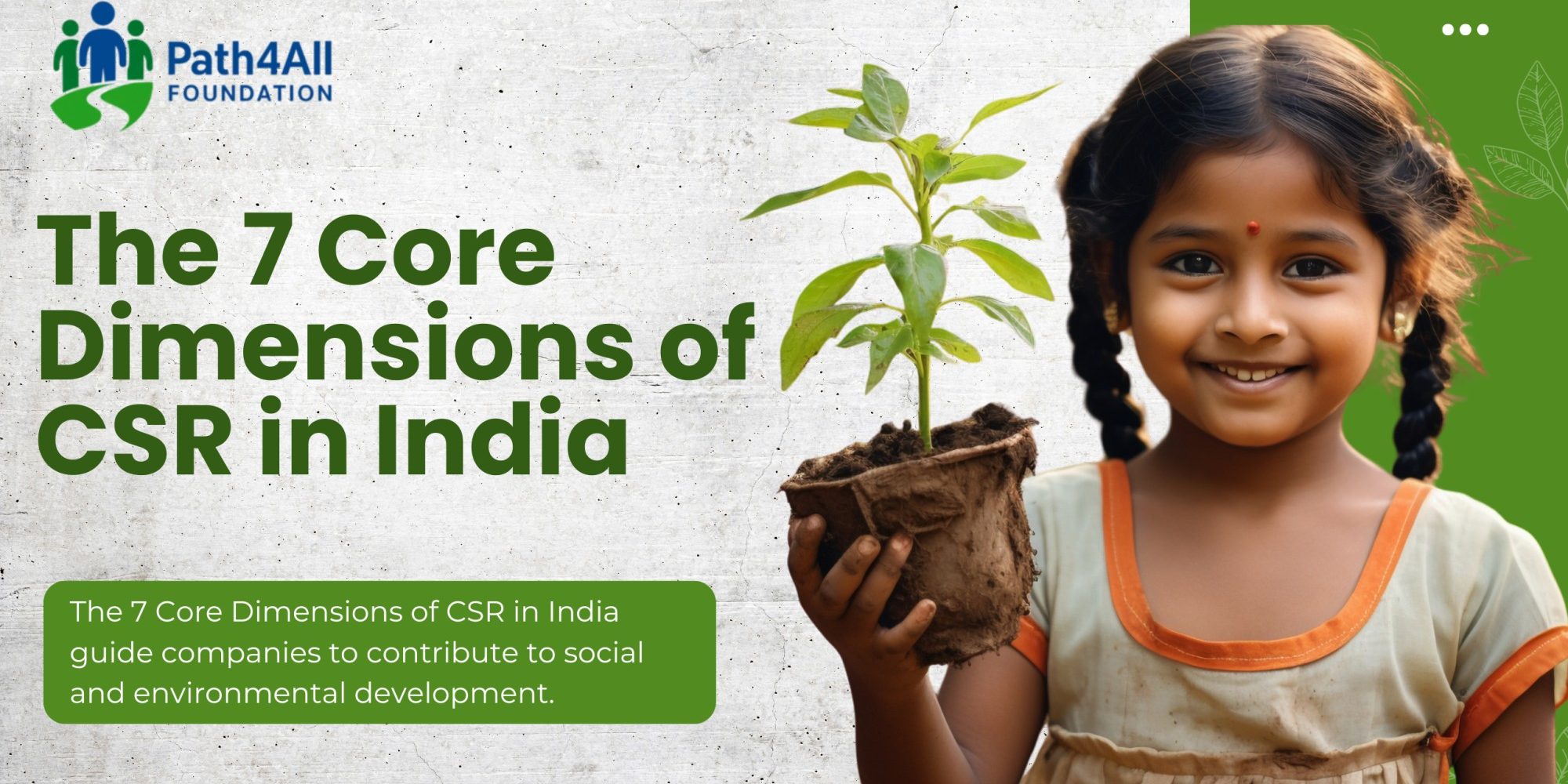
Business has a responsibility beyond its basic responsibility to its shareholders; a responsibility to a broader constituency that includes its key stakeholders: customers, employees, NGOs, government – the people of the communities in which it operates.”
— Courtney Pratt, Former CEO, Toronto Hydro
In India, Corporate Social Responsibility (CSR) has undergone a paradigm shift. Once seen as a voluntary act of charity, CSR is now a powerful tool for driving inclusive growth, community development, and sustainable innovation. The introduction of Section 135 under the Companies Act, 2013 made CSR spending mandatory, compelling Indian businesses to align social good with core strategies.

This shift is not just regulatory; it’s transformational. Today, businesses actively collaborate with NGOs, social enterprises, and local communities to design and implement projects that create measurable, lasting change. The evolution of CSR is best captured through Carroll’s Pyramid, which classifies responsibility into four layers: economic, legal, ethical, and philanthropic—each equally vital in today’s interconnected world.

Since the liberalization era of the 1990s, Indian industry has experienced exponential growth. With globalization came greater accountability—businesses realized that sustainable expansion must include environmental responsibility and social development. As companies grew in size and influence, so did their responsibility toward the communities that fuel their growth.
CSR now serves as a strategic lever that enhances stakeholder trust, strengthens brand equity, and delivers inclusive progress.
♦ Globalization and Market Expectations
With global supply chains becoming more integrated, businesses are under growing pressure to adopt responsible labor practices, uphold human rights, and protect the environment. CSR partnerships now serve as both a compliance mechanism and a value-add for market expansion and investor appeal.
♦ Alignment with Global Standards
International frameworks like the UN Global Compact and SA8000, though not legally binding, set important ethical benchmarks. Indian corporates increasingly align with these principles to foster transparency, governance, and social accountability through NGO partnerships.
♦ Brand Identity and Stakeholder Trust
Modern businesses are brand-driven entities. Integrating CSR into the brand DNA enhances public image, builds customer loyalty, and sets companies apart in a competitive market.
♦ Strategic Business Alignment
CSR is no longer just about donating money. Under Section 135, companies are expected to allocate 2% of their average net profits toward CSR—but the real impact lies in aligning these investments with core business objectives.
Example: A pharmaceutical company running mobile healthcare clinics doesn’t just meet CSR compliance—it builds brand trust, promotes wellness, and reaches untapped markets.
CSR is now seen as a model of shared value—where social welfare and business success go hand-in-hand. Strategic partnerships between companies and NGOs allow:
These partnerships facilitate last-mile delivery of services, ensuring that CSR funds translate into real, visible outcomes.

A defining trend in Indian CSR is the shift from top-down charity to bottom-up development. Community engagement ensures that initiatives are relevant, sustainable, and culturally appropriate.
According to the Journal of Business Perspective (2022), CSR initiatives built with community participation have higher adoption rates and long-term impact.
NGOs play a critical role here—translating corporate intent into grassroots action. With deep-rooted local networks and community trust, NGOs ensure that CSR efforts are not just well-intentioned, but well-executed.
⇒ Education & Skill Development
From digital classrooms to vocational training, CSR in education empowers youth with tools to escape poverty and contribute meaningfully to society.
⇒ Healthcare & Sanitation
Mobile clinics, awareness campaigns, and hygiene infrastructure bring life-saving services to underserved communities.
⇒ Livelihood Creation
Skill-building and entrepreneurship initiatives enable financial independence and long-term stability for marginalized families.
⇒ Environmental Sustainability
Projects like water conservation, afforestation, and clean energy ensure that development doesn’t come at the cost of nature.
⇒ Women Empowerment
CSR programs that invest in women’s health, education, and income opportunities foster generational progress and community well-being.
⇒ Innovation & Scalability
Tech-enabled CSR—like AI-based learning platforms and digital health apps—ensures cost-effective, scalable, and data-driven social impact.
Modern CSR demands accountability. Digital tools now power real-time monitoring, AI-driven reporting, and measurable KPIs. Businesses can now showcase their impact transparently—earning trust and fulfilling legal and ethical responsibilities.
India’s CSR journey is evolving into a blueprint for sustainable, community-led transformation. By embracing innovation, transparency, and strategic partnerships, businesses can achieve much more than compliance—they become architects of change.
With purpose-driven NGOs like Smile Foundation, companies can co-create a future that is equitable, resilient, and truly sustainable.
+919821740352
Registered NGO | Darpan ID: HR/2025/0676497 | 12A & 80G Approved
All Donations are eligible for tax exemption under Section 80G of the Income Tax Act.